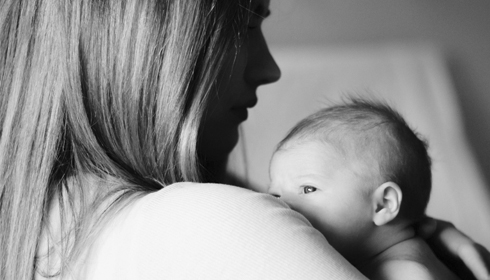
Involuntary Urine Leakage After Childbirth Linked to Mental Health Issues in Underserved Women: Study
UT Southwestern Medical Centre researchers found that many poor women still have problems with urine incontinence a year after giving birth. They also discovered a link between this problem and mental health issues such as depression and anxiety. The results of this study make it clear that women need postpartum care that takes care of both their physical and mental health.
The urogynecology published study, which involved hundreds of women. Researchers discovered that high body mass index, previous childbirth, and mental health issues such as depression and worry can all contribute to chronic urine incontinence Dr. David Rahn, an obstetrics and gynaecology professor at the University of Texas Southwestern, and Dr. Sonia Bhandari Randhawa, a second-year urogynaecology student, led the study.
"Our study draws a bridge between two vital components of health care, often overlooked and neglected: postpartum care and mental health," stated Bhandari Randhawa. I agree.
UT Southwestern and Parkland Health started a community-based project in October 2020. The project, known as eMCAP, provides assistance to women following childbirth. The goal is to give low-income women in Dallas County access to health care for one year after giving birth. The scheme requires the women to regularly fill out questionnaires about their physical and mental health, as well as undergo physical exams.
Twelve months after giving birth, the experts reviewed the responses of 419 eMCAP participants. They asked people questions to see if they had problems with their urinary tract, anxiety, or depression, and if there was a link between these problems and things like age, weight, number of previous deliveries, and method of delivery.
According to the study, most of these women have problems with pee leakage. Almost a third of people had stress urinary incontinence, which is when urine leaks out when you make sudden moves like coughing or sneezing. When they suddenly had to go to the toilet, about 16 percent of them leaked. This is called urgency urinary incontinence.
The results revealed a link between stress, urinary incontinence, and both a higher body mass index and depressive symptoms. Stress and multiple pregnancies were associated with urgency urinary incontinence. Both the number of pregnancies and the level of anxiety were associated with more problematic urine symptoms.
Dr. Rahn said that the study didn't say if mental health issues lead to urinary incontinence or if the situation leads to mental health issues. He did say, though, that a previous study has shown that the shame that comes with having to deal with urinary incontinence can be bad for mental health. Unfortunately, if your diarrhoea is bad enough, you might feel embarrassed and alone and have trouble making friends. He said it's straightforward to see how urinary tract incontinence could lead to mental health issues.
Dr. Bhandari Randhawa said that checkups after giving birth are a wonderful time for doctors to ask about mental health and accidents where pee leaks out. Even though doctors may not have time to discuss urinary incontinence, depression, and anxiety, she stressed the importance of asking relevant questions. Receiving the appropriate referral for these curable conditions can profoundly affect patients' lives.
A group of researchers, including Drs. David B. Nelson, Elaine Duryea, Jessica Pruszynski, and Andrea Rizkallah, worked on the study. Dr. Catherine Spong, OB/GYN chair and professor, and Dr. David, OB/GYN chief, are both at the university. Dr. David is an associate professor and heads the maternal-foetal medicine division. Dr. Elaine Duryea is also Parkland Health's head of obstetrics.